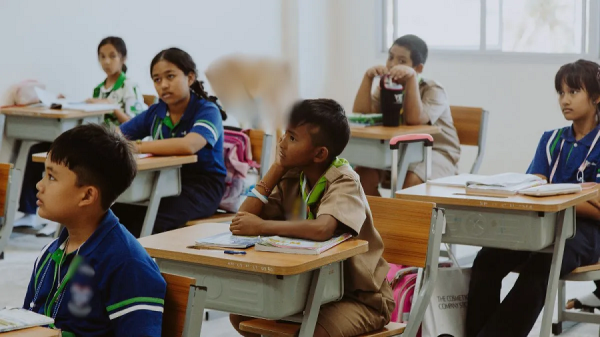
Boys' and girls' schools in Maharashtra will now be merged to form co-educational institutions.
There will no longer be separate schools for boys and girls in Maharashtra. The state government has announced that all separate boys' and girls' schools operating on the same campus will now be merged and converted into co-educational institutions. The Department of School Education and Sports issued a corrigendum amending its earlier proposals from 2003 and 2008. This move follows the Bombay High Court's order in Petition No. 3773/2000, which stated that "separate girls' schools should no longer be permitted."
According to the state government, co-education creates an environment of equality, enhances mutual respect and understanding between different genders, promotes healthy social and communication skills, and prepares students for the diverse, real-world environment they face after school.
Official Statement
The official statement states, "Co-education also promotes balanced participation in academics and extracurricular activities. The operation of co-educational schools is in line with the times, which aim to prevent gender discrimination among school-age children and ensure that boys and girls have the opportunity to study together and develop their personalities."
Initiatives to Promote Equality and Social Education
The government emphasized that co-education promotes equality, mutual respect, and dialogue between genders. It prepares students for life beyond school, where cooperation and inclusiveness are key to personal and professional success. According to the latest UDISE+ 2024-25 report, 1.54 percent of Maharashtra's 1.08 lakh schools are exclusively for girls, while 0.74 percent are exclusively for boys.
This order, issued in the name of the Governor of Maharashtra, makes the establishment of co-educational schools in the state an official policy change. This marks a new chapter in the state's education system, aimed at promoting inclusivity, equity, and holistic development among young learners.
-
Labour plots major vaping clampdown to stop kids getting addicted

-
Gardeners should sprinkle coffee grounds this autumn for one important reason

-
Gardeners should sprinkle coffee grounds this autumn for one important reason

-
Little Nightmares 3 review – disturbing spooks with co-op play only helps enhance the horror

-
Little Nightmares 3 review – disturbing spooks with co-op play only helps enhance the horror
